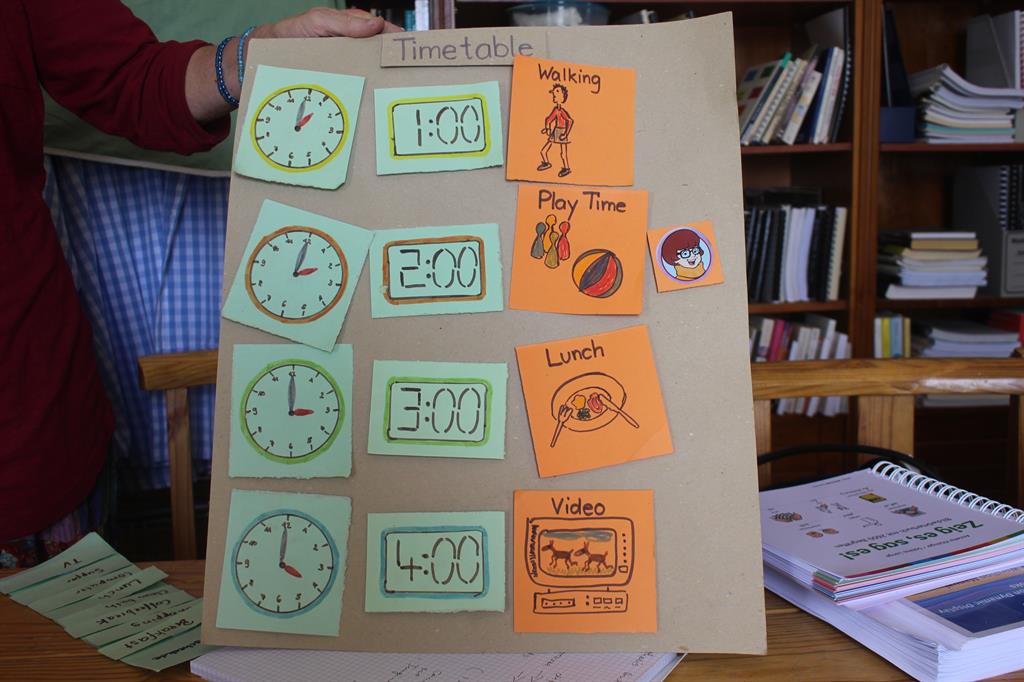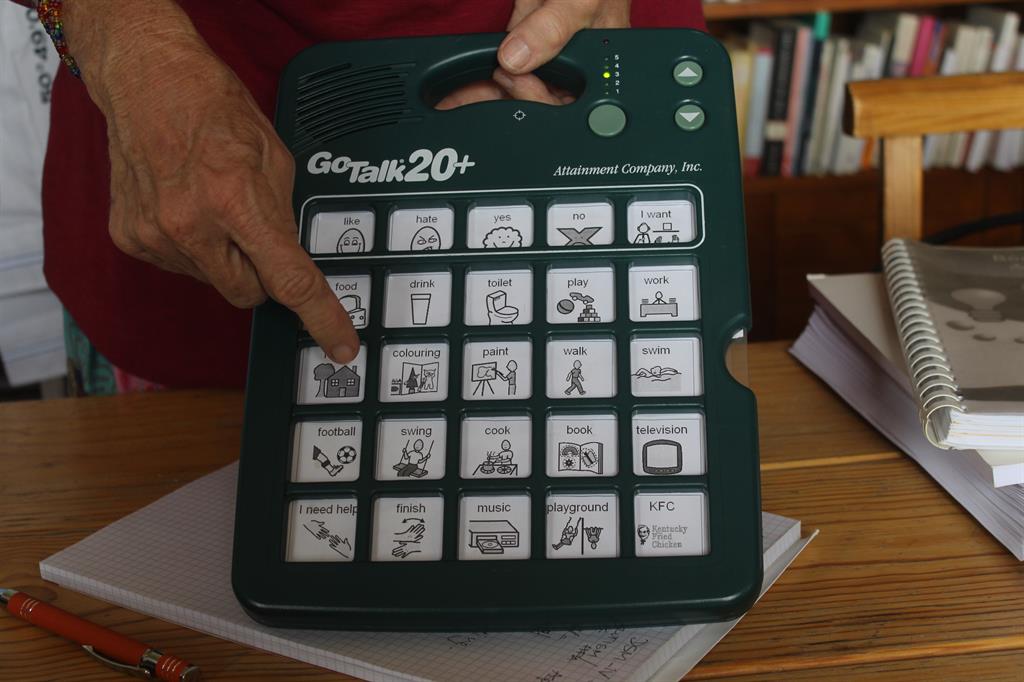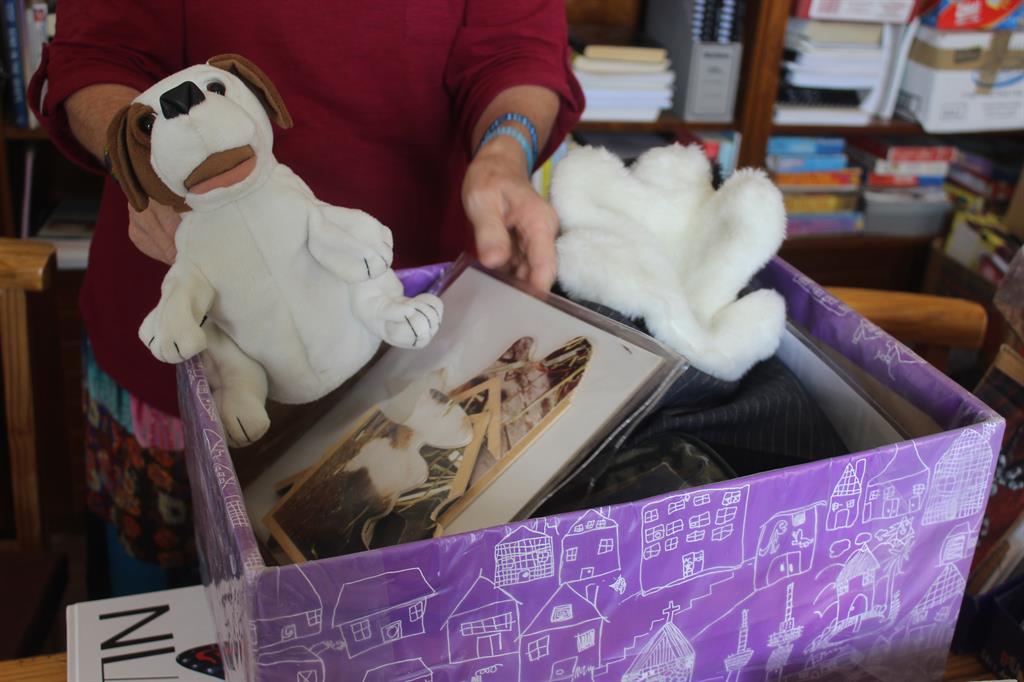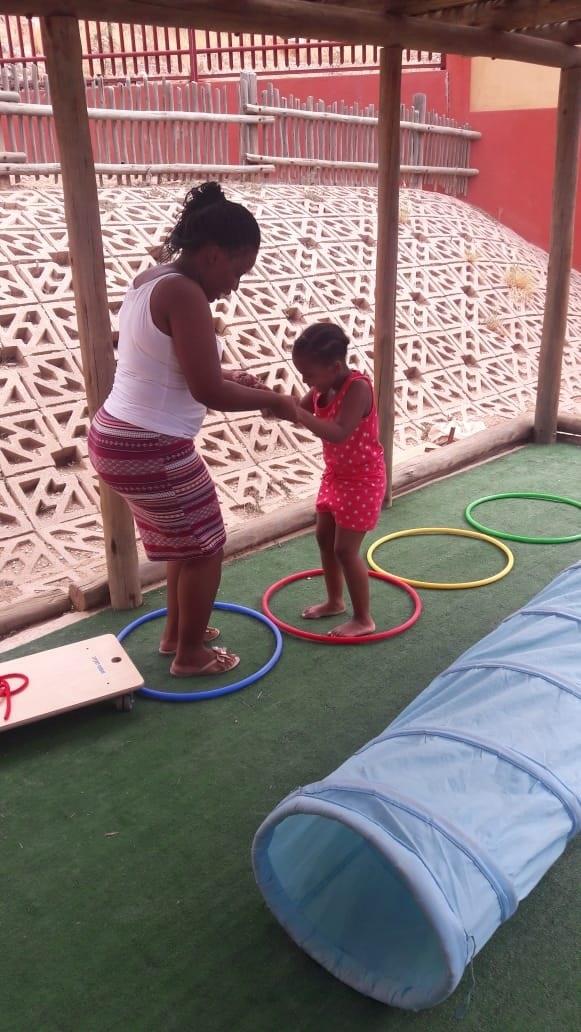Just different, not less
Autism awareness month strives to raise awareness on autism and help people understand that this is not an illness or disease which can be cured, but with the right support it can be managed
Mariselle StofbergAutism is a lifelong developmental condition that affects how people perceive the world and interact with others.
Autism, or autism spectrum disorder (ASD), refers to a broad range of conditions characterised by challenges with social skills, repetitive behaviours, speech and nonverbal communication. Autism is measured on a spectrum, which in turn means that it can take on various forms. “Many people are under the impression that this scale indicates more severe cases of autism and some that are less severe. In reality there is no more or less with autism, just different forms,” said Petra Dillmann, the co-ordinator of the Autism Association of Namibia and the Special Needs Network.
“Autism awareness is the acceptance of the things we cannot change and to accept and embrace the difference. It is the challenge to give to yourself and be changed by your child for the positive and not to change your child because of the standards set by society,” said Huipie van Wyk, the director of Side by Side Early Intervention Centre.
Side by Side Early Intervention is one of the facilities that helps not only children and their families with autism, but also various other special needs. They offer training, therapy and emotional support for maintaining a quality life and a stable environment for all children with special needs.
Dillmann emphasises that every autistic person experiences different challenges and difficulties which can include learning disabilities, mental health issues or many others which requires a different approach. “Because people are different they have different methods or techniques that help them. The challenge is to, unfortunately sometimes through trial and error, establish which method works for you and your family. It is important to work together as a professional team which includes the person with autism and the parents. Because of the diversity of autism, it is important to set up individual education plans.”
This year the theme for autism month is Assistive Technology – Active Participation and Dillmann said that their association is in complete support of this theme. “The Autism Association of Namibia is joining that theme and we will concentrate on augmentative and alternative communication, which is not so much the expensive talkers and tablets, but more low technology like communication boards. We are also concentrating and joining the #ActuallyAutistic community in getting more autistic voices heard.”
Autism is diagnosed based on observation by a diagnostician or team of diagnosticians (e.g. neuropsychologist, psychologist, psychiatrist, licenced clinical social worker, etc.).
Autistic people think and see the world differently. One of the techniques used that has achieved great success is the use of communication boards. “With these boards we are able to use pictures and visuals to communicate. We establish a routine and give them the opportunity to participate in the conversation. People assume that just because some autistic people can’t speak they have nothing to say. They still have an opinion and they still have feelings, they just experience trouble expressing these feelings and emotions.”
Van Wyk believes that this month plays an important role to address the assumptions people have of autism. “Society easily labels these children as being naughty or misbehaving, instead of trying to understand their behavioural differences. As a mother of a child with special needs, I can add that normal in our society is over-rated.”
According to Van Wyk this month helps to challenge societal norms and educate society on autism and mental health issues. “Before we want to compare our children we need to be educated as a society. What is normal and who sets the standards?”
Some of the signs of people on the autistic spectrum
Ø Social communication issue
Autistic people have difficulties with interpreting verbal and non-verbal language like gestures, tone of voice, sarcasm and jokes. Many have a very literal understanding of language and think people always mean exactly what they say. This also includes difficulties in understanding and expressing language as used in typical communication.
Ø Repetitive behaviour and routines
People with autism tend to be very attached to routines which helps them to have some stability and organisation within a world they have trouble controlling. People on the autistic spectrum find a form of comfort in routine, order and consistency and may portray atypical and repetitive movements.
Ø Highly focused interests
People with autism tend to get very focused on certain interests, which can be anything from drawing, pictures, trains, cars and so forth. Often these special interests can be used to teach, and over time it is possible to help them use these interests to create a career or something beneficial for them.
Ø Sensory sensitivities
Autistic people tend to show enhanced sensitivity towards some sensory experiences like touch, smell, excessive noise or a lack of sound, textures and so forth. With the right programmes and assistance (for example emotional regulation strategies) it is possible to help them to find ways in which they can work around these issues.
More about the association:
Autism Namibia is an association made up of parents, their children with ASD, adults with ASD, friends and professionals who are interested in promoting the well-being of persons with autism spectrum disorders within Namibia, and to provide a network between the various autism organisations world-wide. Their aim is to provide support and assistance as well as training in the field of autism to parents and professionals. In the current economic climate and with the diverse needs of various members of the community this is becoming increasingly difficult.
Agenda of the Autism Association of Namibia:
§ Sensitising the community and government as to the needs, rights and support systems for persons with ASD
§ Training of professionals and parents in detecting autism spectrum disorders and assessment methods.
§ Setting up offices, resource centre and library services, etc. to provide support and training to parents and professionals.
§ To have an ongoing system of identifying and assessing children with ASD and providing support to them and/or their parents, teachers and professionals.
§ Setting up and implementing alternative and augmentative communication systems for persons with ASD’s and other disorders.
§ Identifying schools and other venues to mainstream, partly mainstream or otherwise educate persons with ASD according to their needs. This includes classrooms, early intervention centres, training locales, autism specific schools, adult sheltered workshops and leisure facilities.
§ Transitioning and job coaching, as well as adult services, for persons with ASD and/or communication difficulties.
If you would like to know more please contact the Autism Association of Namibia at autnam@iway.na or Side by Side Early Intervention Centre at info@sidebysidenamibia.com








Comments
My Zone
No comments have been left on this article